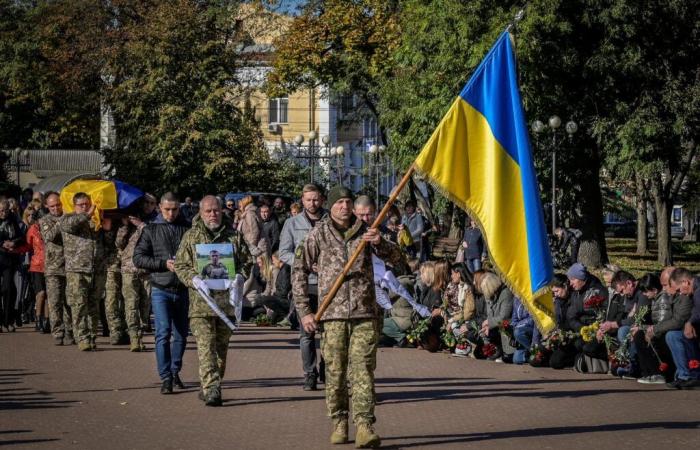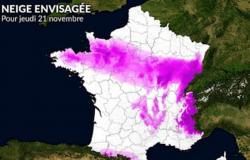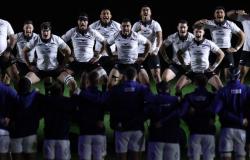
Ln February 26, in a statement that left its mark, Emmanuel Macron suggested that troops from volunteer countries could be sent to Ukraine. This position, reaffirmed, is shared by several European heads of state and government. Despite the reluctance of some of our partners, and despite the floods of disinformation, largely orchestrated by Russia, the French president held his ground.
Read also | Live, war in Ukraine: what is the situation on the ground, a thousand days after the start of the Russian invasion? Ask your questions to our journalist
Read later
It was obviously not a question of mobilizing young Europeans – which would have no operational interest – but of bringing together a European coalition of military instructors in Ukraine. This would offer considerable assistance to this attacked country and would be an effective way to deter attacks by the Russian army.
Faced with Moscow’s aggression, Ukraine showed exemplary resistance and demonstrated its capacity for operational innovation, by targeting military objectives including on the territory of the Russian Federation, as article 51 of the The United Nations Charter authorizes it. However, to maintain and strengthen its defense capabilities, the Ukrainian army absolutely needs its soldiers to be trained by European experts. The country’s operational capacity depends on it, facing its aggressor whose entire economy is geared towards war and who receives ever-increasing support from its allies: North Korean missiles, Iranian drones, weapons containing Chinese components and, at the end of October , deployment of troops from North Korea.
Read also | Live, war in Ukraine: what is the situation on the ground, a thousand days after the start of the Russian invasion? Ask your questions to our journalist
Read later
France has already implemented important measures by welcoming and training Ukrainian soldiers on its own soil. It is now necessary to extend and complete this action with a training mission on the ground in Ukraine. This would not only accelerate the acquisition of essential knowledge for kyiv’s forces, but also better adapt training to the immediate needs of the situation, by concentrating the preparation of troops on priority issues: anti-aircraft defense and air defense. use of long-range missiles fired from the ground or from combat aircraft.
Let us stop, however, mentioning the risk of a so-called “escalation”. The term has no meaning when coming to the aid of a country under attack, and it is indeed a question here of saving the lives of thousands of civilians, without involving the French armed forces directly in the fighting.
You have 59.09% of this article left to read. The rest is reserved for subscribers.





